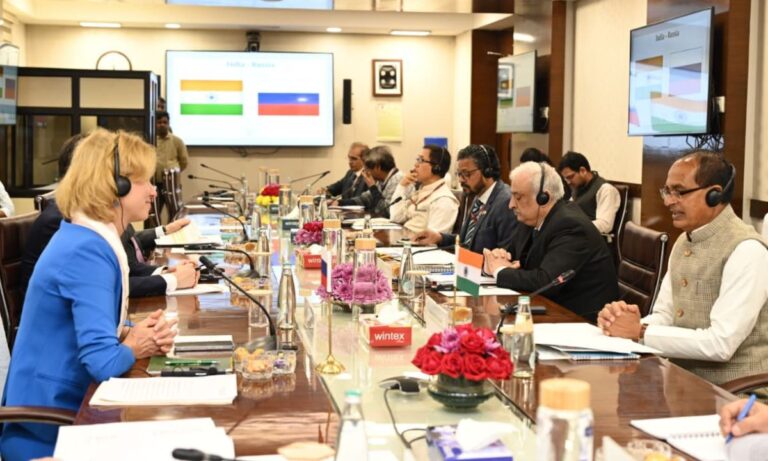
MISHTI Scheme: Bhupender Yadav Leads Mangrove Plantation Drive in Chengalpattu, Tamil Nadu
The Union Minister for the Environment, Forests and Climate Change, Union Minister Bhupendra Yadav, today inaugurated a plantation program for mangroves in the Chengalpetu District of Tamil Nadu. The program, known as MISHTI, is intended to promote the conservation of mangroves and the sustainable development of the Indian coastline.
More than 100 individuals, including students, participated in the drive, which is an integral part of the ongoing Hariyali Mahotsav campaign, with a particular emphasis on mangroves.
During the program, Minister Yadav emphasized the importance of public involvement in the plantation drive, especially concerning mangroves, to empower coastal communities. He interacted with students, frontline workers, and local communities, encouraging their active participation in mangrove conservation. Furthermore, he instructed officials to use the local language for naming mangroves, fostering a sense of ownership and inspiring greater local engagement in their preservation.
Yadav highlighted Tamil Nadu’s remarkable 1076 km coastline, which is susceptible to recurring natural disasters such as cyclones and storms. Mangrove forests, acting as a natural bioshield, have played a crucial role in protecting the lives and livelihoods of coastal communities, particularly fishers. Thus, preserving and enhancing the ecological health of mangroves becomes imperative to ensure the long-term sustainability of the coast and its residents.
As part of the event, the Union Minister released a book titled “Biodiversity and Importance of Mangrove Ecosystem,” which was prepared by the M. S. Swaminathan Research Foundation in Chennai. This publication sheds light on the significance of mangroves and their ecological contributions.
The MISHTI program, recently launched by the Government of India, aims to undertake mangrove reforestation and afforestation along the coastal districts of the country. It draws inspiration from best practices both within India and from other nations like Indonesia.
The program also seeks to develop ecotourism initiatives and generate livelihoods in coastal states through the conservation and sustainable management of mangroves. India actively participates in the ‘Mangrove Alliance for Climate (MAC),’ an intergovernmental alliance promoting mangrove conservation, of which it became an active member during the 27th Conference of Parties (COP27).
Presently, approximately 5000 sq km of area in India is covered by mangroves. Through the MISHTI program, an additional 540 sq km of mangrove area is proposed to be protected across nine states and four union territories.
The scheme, scheduled to run from 2023-2024 to 2027-2028, aims to converge funds from the Compensatory Afforestation Fund Management and Planning Authority (CAMPA), Mahatma Gandhi National Rural Employment Guarantee Scheme (MGNREGS), and other sources. In Tamil Nadu, around 39 sq km of land has been designated for mangrove reforestation and afforestation under this program.
Following the plantation drive, Minister Yadav visited the M. S. Swaminathan Research Foundation in Taramani, Chennai. He engaged in discussions with Dr. Sowmya Swaminathan, the chief scientist of MSSRF. The foundation is dedicated to research supporting the conservation of mangroves along India’s coastal areas, which forms the core of the MISHTI program, as envisioned by Prime Minister Narendra Modi.
The mangrove plantation program in Tamil Nadu signifies a significant step towards safeguarding coastal ecosystems and empowering local communities. With sustained efforts and collaborative initiatives like MISHTI, India aims to secure the future of its mangrove habitats, ensuring the well-being of both the environment and its inhabitants.






